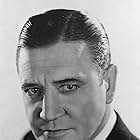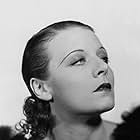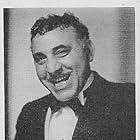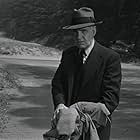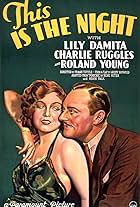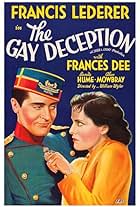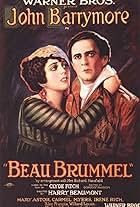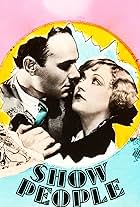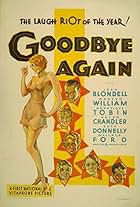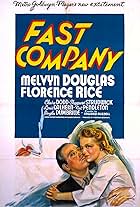Jimmy Farnsworth (Allen Kearns) bets his friend $5,000 that he can get any two people, under the proper environment, to fall in love and become engaged within a month.Jimmy Farnsworth (Allen Kearns) bets his friend $5,000 that he can get any two people, under the proper environment, to fall in love and become engaged within a month.Jimmy Farnsworth (Allen Kearns) bets his friend $5,000 that he can get any two people, under the proper environment, to fall in love and become engaged within a month.
Photos
Rita La Roy
- Louise Endicott
- (as Rita LaRoy)
- Director
- Writers
- All cast & crew
- Production, box office & more at IMDbPro
Storyline
Did you know
- TriviaThe play, "I Love You," opened on Broadway in New York City, New York, USA on 28 April 1919 and had 56 performances. The opening night cast included Richard Dix, Robert Strange and Ruth Terry. Dix played the role of the electrician in the stage version as well. Review: New York Tribune, April 29, 1919, page 13.
- SoundtracksYou're Always in My Arms
(1929) (uncredited)
Music by Harry Tierney
Performed by Henry Armetta on the violin
Featured review
... although RKO usually placed him in melodramas. This one is a surprisingly unnaughty romantic comedy of errors considering this is the precode era, and even though the Depression has not begun to hit hard it makes sport of the idle rich as though they could not manage to deal with a can opener if not for the help of their valets.
The film opens on a couple of rich men - Jimmy Farnsworth and George Van Horne - playing pool in their tuxedos in a fabulous art deco apartment. Unfortunately, the lights are on the fritz. Enter Peter Darby the electrician (Richard Dix). While Darby is fixing the lights Farnsworth and Van Horne enter into a bet. Farnsworth claims there is no such thing as love and that he can get any man to propose to any woman and get her to accept. They wager 5000 dollars on it. Farnsworth is allowed to use any means possible to accomplish the task, and Van Horne gets to name the man and woman. Van Horne names a difficult woman of their wealthy crowd, but for the man he names Darby the electrician. The odd thing here is that the two men bring Darby into full knowledge of the bet - he gets to keep half of Farnsworth's 5000 if he succeeds. Why Van Horne was OK with this was unclear. Most of the rest of the film has Darby as a guest at Farnsworth's estate where he is supposed to woo the unsuspecting heiress while masquerading as a wealthy man. Farnsworth may be a rather useless fellow, but he is quite good at providing the romantic ambiance. He is so good, in fact, that things go terribly and hilariously wrong and almost every woman at the party winds up passionately attracted to Darby except the object of the bet. You see, Farnsworth made one critical error while remaking Darby - he taught him to act and dress just like himself. Clothes may make the man but they also make a stuffed shirt, and the woman of interest wants nothing to do with them. Plus Darby has begun to develop an actual attraction for Farnworth's girl, Joan, with whom he has a great deal in common. I'll let you watch and see how this pans out.
Like I said before, the funny part is seeing how dim Farnsworth and Van Horne are portrayed here versus Farnsworth's butler Brooks (Anthony Bushell) and Darby the electrician. The two working class men discuss poetry, labor relations, and the burden of a good education early on in the film. Apparently Brooks, highly educated, took a job as a butler since all potential bosses were suspicious of his education and knowledge.
This one might have benefited by tighter pacing and perhaps a better supporting cast for Dix, but overall it was a pretty good drawing room comedy.
The film opens on a couple of rich men - Jimmy Farnsworth and George Van Horne - playing pool in their tuxedos in a fabulous art deco apartment. Unfortunately, the lights are on the fritz. Enter Peter Darby the electrician (Richard Dix). While Darby is fixing the lights Farnsworth and Van Horne enter into a bet. Farnsworth claims there is no such thing as love and that he can get any man to propose to any woman and get her to accept. They wager 5000 dollars on it. Farnsworth is allowed to use any means possible to accomplish the task, and Van Horne gets to name the man and woman. Van Horne names a difficult woman of their wealthy crowd, but for the man he names Darby the electrician. The odd thing here is that the two men bring Darby into full knowledge of the bet - he gets to keep half of Farnsworth's 5000 if he succeeds. Why Van Horne was OK with this was unclear. Most of the rest of the film has Darby as a guest at Farnsworth's estate where he is supposed to woo the unsuspecting heiress while masquerading as a wealthy man. Farnsworth may be a rather useless fellow, but he is quite good at providing the romantic ambiance. He is so good, in fact, that things go terribly and hilariously wrong and almost every woman at the party winds up passionately attracted to Darby except the object of the bet. You see, Farnsworth made one critical error while remaking Darby - he taught him to act and dress just like himself. Clothes may make the man but they also make a stuffed shirt, and the woman of interest wants nothing to do with them. Plus Darby has begun to develop an actual attraction for Farnworth's girl, Joan, with whom he has a great deal in common. I'll let you watch and see how this pans out.
Like I said before, the funny part is seeing how dim Farnsworth and Van Horne are portrayed here versus Farnsworth's butler Brooks (Anthony Bushell) and Darby the electrician. The two working class men discuss poetry, labor relations, and the burden of a good education early on in the film. Apparently Brooks, highly educated, took a job as a butler since all potential bosses were suspicious of his education and knowledge.
This one might have benefited by tighter pacing and perhaps a better supporting cast for Dix, but overall it was a pretty good drawing room comedy.
Details
- Runtime1 hour 5 minutes
- Color
- Aspect ratio
- 1.20 : 1
Contribute to this page
Suggest an edit or add missing content



